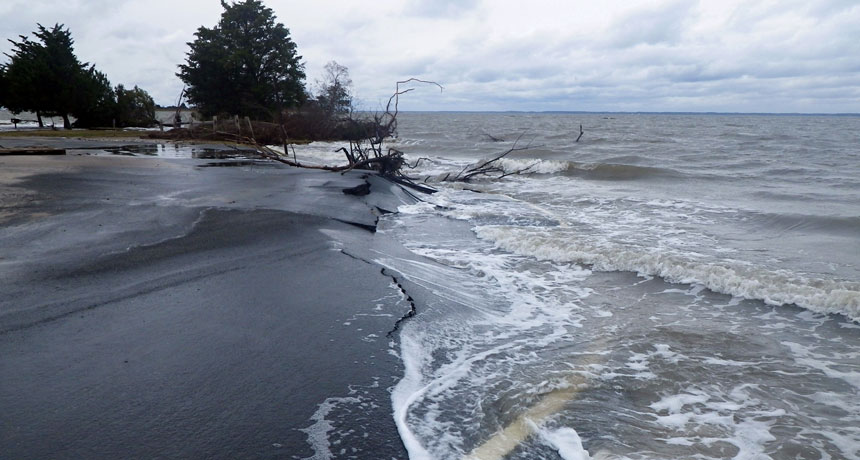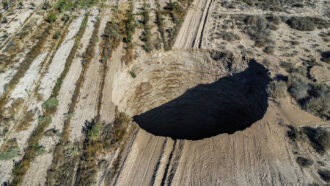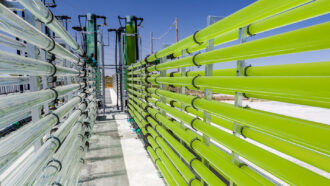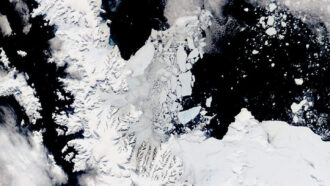Sea level rising fastest in 2,800 years
Global warming caused more than half of oceans’ rise during the 1900s

Sea levels rose faster during the 20th century than any other time since the eighth century B.C., new research shows. Higher sea levels increase the risk of big storms — such as Hurricane Sandy — that cause flooding.
NPS Climate Change Response/Flickr
Sea levels rose faster during the 20th century than at any time during in the previous 2,800 years, a new study shows. That means the oceans haven’t risen this quickly since the founding of ancient Rome.
Researchers calculated how global sea levels have risen and fallen in the past. Throughout the 1900s, the oceans on average rose by some 13.8 centimeters (5.4 inches). More than half of that rise was due to global warming, they estimated. Global warming has been melting glaciers, for instance. That has dumped more water into the oceans. But warming has also made the ocean water expand.
Robert Kopp is a climate scientist at Rutgers University in Piscataway, N.J. His team analyzed ancient sea levels from around the world. Many of the measurements had come from probing the muck of marshes that once sat along ancient seashores. By looking at preserved microbes in the muck, scientists could estimate how salty the marsh had been at a certain time. This told them them how high the salty seas had been ages ago.
The team analyzed sea-level measurements from 24 places around the world. Those sites ranged from New Zealand to New Jersey. The scientists then combined the ancient sea-level data with modern sea-level measurements. The water levels rose by about 0.1 millimeters (or 4 thousandths of an inch) per year from the first century through the eighth century. Sea levels then fell around 0.2 millimeters per year between the 11th and 14th centuries. Around the start of the Industrial Revolution in the mid-18th century, sea levels began rising abruptly. By the 20th century, sea levels were climbing, on average, some 1.4 millimeters (0.06 inch) per year.
The new research was posted early online, February 22, in the Proceedings of the National Academy of Sciences .Kopp’s group also used computers to model how the sea level would have changed without global warming. They estimated that the 20th century rise would have been no more than 0.7 millimeters per year.
Rising sea levels make coastal flooding worse. They also threaten the homes of people who live in island nations.
Power Words
(for more about Power Words, click here)
climate The weather conditions prevailing in an area in general or over a long period.
computer model A program that runs on a computer that creates a model, or simulation, of a real-world feature, phenomenon or event.
glacier A slow-moving river of ice hundreds or thousands of meters deep. Glaciers are found in mountain valleys and also form parts of ice sheets.
global warming The gradual increase in the overall temperature of Earth’s atmosphere due to the greenhouse effect. This effect is caused by increased levels of carbon dioxide, chlorofluorocarbons and other gases in the air, many of them released by human activity.
Industrial Revolution A period of time around 1750 that was marked by new manufacturing processes and a switch from wood to coal and other fossil fuels as a main source of energy.
microbe Short for microorganism. A living thing that is too small to see with the unaided eye, including bacteria, some fungi and many other organisms such as amoebas. Most consist of a single cell.
sea level The overall level of the ocean over the entire globe when all tides and other short-term changes are averaged out.







